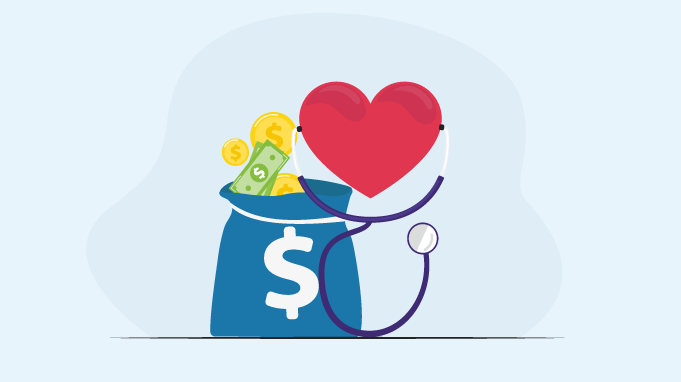Achieving financial wellness can be challenging, especially in times of high inflation, where the cost of living is increasing at a rate faster than the growth of your income. However, with the right strategies and mindset, it is possible to attain financial wellness, even in a high inflation economy.
One of the first steps towards financial wellness in high inflation times is to create a budget and stick to it. This means carefully tracking your income and expenses, identifying areas where you can cut back, and making sure that you are saving enough to meet your financial goals. It’s also important to review your budget regularly and make adjustments as needed to ensure that it remains realistic in the face of changing economic conditions.
Another important step towards financial wellness in high inflation times is to focus on saving and investing for the long term. It’s important to create an emergency fund to protect yourself from unexpected expenses and to invest in assets that have the potential to provide a return that outpaces inflation, such as stocks and mutual funds. High inflation also creates opportunities for investing in real-estate, as property values tend to increase with inflation.
One of the most effective ways to stay on top of high inflation is by managing debt effectively. In a high-inflation environment, the interest on loans and credit card debt is subject to increasing, which can make it harder to pay them off. It’s important to prioritize paying off high-interest debts, such as credit cards, as soon as possible. Consolidating your debt by transferring high-interest debt to a lower-interest loan can also help to reduce the burden of debt.
Another strategy to stay on top of high inflation is to seek out ways to increase your income, such as by taking on a second job, starting a side hustle, or asking for a raise at work. While it’s important to be realistic about what you can achieve, it’s also important to look for opportunities to increase your income, so you can keep pace with the rising cost of living.
Finally, it’s essential to stay informed and educated about personal finance and the economy, so you can make informed decisions about your finances. This includes staying informed about financial products and services, understanding the fees and risks associated with them, and working with professionals when necessary.
In conclusion, attaining financial wellness in high inflation economy times requires a combination of good thinking and disciplined execution.
Here is what Anshu, our reader, shared with us regarding her experience during the Lehman Crisis phase:
Anshu was a young professional who had always been good with money. She was careful with her spending and managed to save a little each month. But when she heard the news of high inflation rate in the economy, she was worried that it would be harder to maintain her financial stability and achieve her financial goals.
Anshu decided to take action and began by creating a budget. She tracked her income and expenses, identified areas where she could cut back, and made sure that she was saving enough to meet her financial goals. She also reviewed her budget regularly and made adjustments as needed to ensure that it remained realistic in the face of changing economic conditions.
Anshu knew that saving and investing for the long-term would be crucial in high inflation times, so she focused on creating an emergency fund to protect herself from unexpected expenses and invested in assets that had the potential to provide a return that outpaces inflation, such as stocks and mutual funds. She also took the opportunity to invest in real-estate, as she understood the values of property tend to increase with inflation.
Anshu also made a conscious effort to manage her debt effectively. She prioritized paying off high-interest debts, such as credit cards, as soon as possible. She also consolidated her debt by transferring high-interest debt to a lower-interest loan, which helped to reduce the burden of debt.
Furthermore, Anshu always kept an eye on finding ways to increase her income, such as taking on a part-time job and starting a small business on the side. She also asked for a raise at work and took the initiative to negotiate her salary.
Anshu also made sure she stayed informed and educated about personal finance and the economy, so she could make informed decisions about her finances. She always sought professional advice when necessary and had a financial advisor to guide her on a regular basis.
With her determined mindset and the strategies she implemented, Anshu was able to maintain her financial stability and even achieve financial freedom in the face of high inflation and difficult economic times. Her friends and family often looked at her with admiration and would ask for her financial advice. Anshu had made a smart financial plan for herself and followed through with discipline, which helped her to achieve her financial goals and be financially free.

